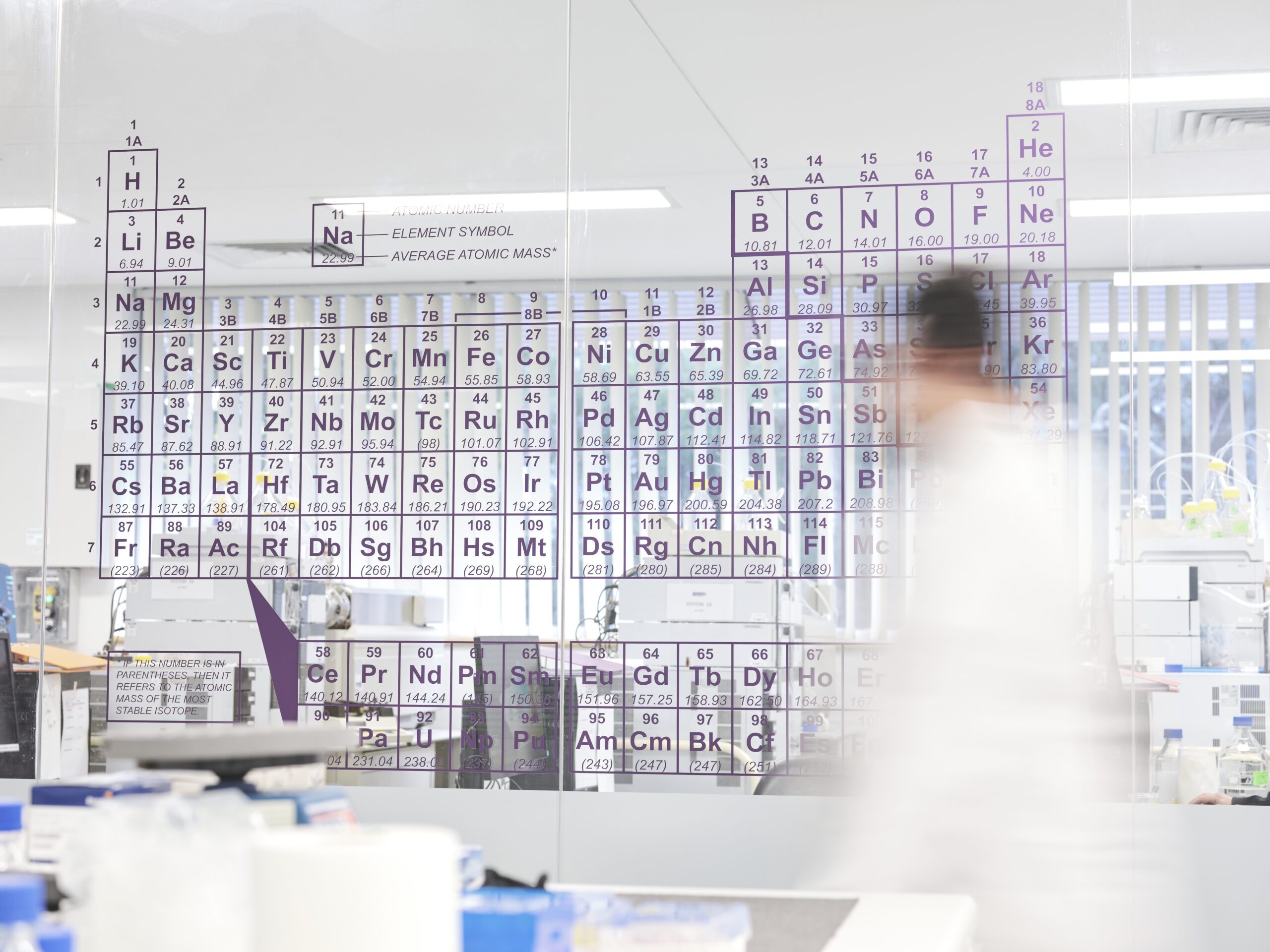By Dr. Kurt Sales, CSO
Section Summary:
How Agilex has emerged as a leader to support the rise of natural products, including Cannabinoids and Psychedelics as medicines for treating CNS disorders, cancers, immuno-oncology, PTSD, and inflammatory disorders.
A brief scan of history reveals the varied roles of both cannabinoids and psychedelics in world history. Natural product medicines, derived from plants, fungi, and marine organisms, have played a critical role in traditional healing systems for centuries. In recent years, there has been a resurgence of interest in these biologically active compounds (cannabinoids and psychedelics), particularly in addressing complex and chronic health conditions such as central nervous system (CNS) disorders, cancers, immuno-oncology, post-traumatic stress disorder (PTSD), and inflammatory diseases.
As the pharmaceutical industry seeks novel and efficacious therapies, natural products like medicinal cannabis and psychedelics are gaining traction, supported by advances in regulated bioanalysis and clinical pharmacology.
With almost 30 years’ experience in small molecule Regulated Bioanalysis, Agilex Biolabs is leading the charge in supporting these new studies, particularly in relation to cannabinoids and psychedelics. This blog addresses the rise in some of these natural products as therapeutics and provides a case study for a psychedelic program supported by Agilex for a phase 1 clinical trial.
Definitions:
Cannabinoids:
Cannabinoids are bioactive molecules found in cannabis plants (phytocannabinoids) or produced naturally in the human body (endocannabinoids), many of which have therapeutic potential for conditions like chronic pain, epilepsy, and anxiety.
Psychedelics:
Psychedelics are a class of psychoactive substances that produce significant alterations in perception, mood, and cognitive processes, primarily by interacting with serotonin receptors in the brain, especially the 5-HT2A receptor.
Introductory Summary:
The following sections explore in more detail the how, from a clinical pharmacology perspective, the treatment of CNS disorders, cancers, immuno-oncology, PTSD, and inflammatory disorders are benefitting from the regulated bioanalysis of cannabinoids and psychedelics.
Medicinal Cannabis: A Versatile Therapeutic Tool
Cannabis sativa has emerged as a potent source of therapeutic agents, particularly cannabinoids such as tetrahydrocannabinol (THC) and cannabidiol (CBD). These compounds interact with the endocannabinoid system, which plays a pivotal role in modulating pain, inflammation, mood, and neuroprotection.
Medicinal cannabis has shown promise in treating CNS disorders, including epilepsy, multiple sclerosis, and Parkinson’s disease. Relevant to CNS disorder, Epidiolex, a purified form of CBD, is approved by the FDA for certain types of epilepsy, highlighting the potential of plant-derived cannabinoids in neurology.
In oncology, cannabinoids are being investigated for their antiemetic properties and as adjuncts to chemotherapy. Preclinical studies also suggest potential anticancer effects, including apoptosis induction and inhibition of tumor angiogenesis.
Furthermore, in PTSD and anxiety-related conditions, CBD is being explored for its anxiolytic and anti-inflammatory properties. The non-psychoactive nature of CBD makes it a particularly attractive candidate for long-term therapeutic use.
Psychedelics: Rewiring the Brain for Therapeutic Gain
Psychedelic compounds such as psilocybin (found in magic mushrooms), lysergic acid diethylamide (LSD), and dimethyltryptamine (DMT) are undergoing a renaissance in clinical research. Psilocybin, in particular, has shown significant efficacy in treating major depressive disorder, PTSD, and substance use disorders.
The mechanism of action is primarily through serotonin 5-HT2A receptor agonism, leading to altered states of consciousness, neuroplasticity, and improved emotional processing. Clinical trials have demonstrated that a single or limited number of psilocybin-assisted therapy sessions can lead to lasting symptom remission.
In addition to psychiatric conditions, psychedelics are being explored in oncology to alleviate cancer-related existential distress and depression. These therapies provide a unique integration of psychological support and neurochemical modulation.
Emerging Natural Products and Anticancer Agents
Beyond cannabis and psychedelics, other natural products are entering the spotlight for their therapeutic potential. Marine-derived compounds such as trabectedin (from the sea squirt Ecteinascidia turbinate) and eribulin (derived from halichondrin B, a marine sponge) are FDA-approved for cancer treatment.
Other promising natural agents include:
- Curcumin: Derived from turmeric, with anti-inflammatory and anticancer properties.
- Resveratrol: Found in grapes, with antioxidant and chemopreventive potential.
- Berberine: From various plants, known for its anti-inflammatory and antimicrobial effects.
Advances in metabolomics and high-throughput screening are enabling the discovery of novel bioactive compounds from previously untapped natural sources. These include endophytic fungi, deep-sea organisms, tropical and desert plants.
Introductory Summary:
In Australia, clinical research into the medical potential of cannabinoids and psychedelics is advancing through preclinical studies, phase 1 trials, pharmacokinetic profiling, biomarker discovery, and therapeutic innovation, supported by specialized bioanalytical laboratories and clinical pharmacology expertise.
Regulated Bioanalysis: Ensuring Precision in Therapeutic Development
The transition from natural product discovery to clinical application necessitates rigorous quantification and validation. Regulated bioanalysis plays a pivotal role in this journey, ensuring the safety, efficacy, and reproducibility of therapeutic interventions.
Liquid chromatography-tandem mass spectrometry (LC-MS/MS) has emerged as the gold standard for measuring drug concentrations in biological matrices. Its high sensitivity and specificity are essential for detecting trace levels of natural compounds in plasma, cerebrospinal fluid, and tissue samples.
Applications of LC-MS/MS in natural product research include:
- Pharmacokinetic profiling of cannabinoids and psychedelics.
- Biomarker discovery and quantification in inflammatory and oncological conditions.
- Metabolite identification and quantitation.
In the context of clinical trials, xxxxxx regulated bioanalytical methods adhere to guidelines set by regulatory bodies such as the FDA and EMA, ensuring data integrity and patient safety.
Agilex Biolabs, a leading provider of regulated bioanalytical services, supports drug developers by offering specialized expertise in the development and validation of LC-MS/MS assays tailored for natural product compounds. With state-of-the-art instrumentation and a proven track record in cannabinoid, psychedelic, and small molecule quantification, Agilex Biolabs enables accurate pharmacokinetic and pharmacodynamic assessments essential for successful clinical trials. Our comprehensive services include method development, validation, sample analysis support—critical components for advancing novel therapies through the clinical pipeline.
Case Study:
Regulated Bioanalytical Services Case Study: Bioanalytical Support for a Phase I Psilocybin Clinical Trial
Agilex Biolabs collaborated with a biotechnology company conducting a Phase I clinical trial to assess the pharmacokinetics and safety of psilocybin in healthy volunteers. The study required the development and validation of a sensitive and specific LC-MS/MS assay to quantify psilocybin and its active metabolite, psilocin, in human plasma.
Agilex Biolabs’ bioanalytical scientists developed a robust method using acetonitrile precipitation followed by dry down and reconstitution to accurately measure both psilocybin and psilocin down to 0.05 ng/mL, ensuring accurate detection of psilocybin and psilocin at low concentrations. The method underwent full validation in accordance with FDA and EMA guidelines, demonstrating excellent accuracy, precision, and stability.
The validated assay was successfully applied to analyze plasma samples collected during the clinical trial, providing critical pharmacokinetic data that informed dosing strategies for subsequent studies. Agilex Biolabs’ expertise in regulated bioanalytical services ensured high-quality data generation, contributing to the trial’s success and supporting the client’s regulatory submissions.
Challenges and Opportunities
The value of LC-MS/MS is self-evident. However, despite the therapeutic promise of cannabinoids and psychedelics, the development of natural product medicines faces several challenges:
- Complex Chemistry: Natural products often have complex structures, complicating synthesis and scale-up.
- Variable Composition: Plant-derived extracts may vary due to growing conditions, processing, and extraction methods and synthetic manufacture can potentially be challenging.
- Regulatory Hurdles: Controlled substances like psilocybin require extensive regulatory oversight.
Nevertheless, the opportunities are immense. Innovations in synthetic biology, such as microbial biosynthesis of cannabinoids and psychedelics, offer scalable and consistent production platforms. Personalized medicine approaches, guided by pharmacogenomics and biomarker-driven strategies, can optimize treatment outcomes.
Collaborations between academia, biotech startups, and big pharma are accelerating translational research. Simultaneously, increased public and governmental support is reducing stigma and fostering policy reform with regards to the role of cannabinoids and psychedelics etc to treat CNS disorders, PTSD and inflammatory disorders, as well as cancers and immuno-oncology.
Conclusion
The resurgence of natural products as medicines represents a paradigm shift in drug discovery and therapeutic innovation. Compounds like medicinal cannabis and psychedelics are leading the charge, offering novel mechanisms of action and holistic approaches to treating complex diseases. Coupled with advancements in regulated bioanalysis and analytical chemistry, these therapies are poised to become integral components of modern pharmacotherapy.
As the biopharma industry continues to navigate this evolving landscape, strategic investment in natural product research, robust analytical validation, and regulatory alignment will be key to unlocking the full therapeutic potential of nature’s pharmacopeia.
Agilex Biolabs is Australia’s largest Toxicology and Bioanalytical Laboratory. With nearly 3 decades of experience in supporting new drug modalities in first in human studies, our Scientists have extensive experience in method development, validation, and sample analysis in plasma and urine and a variety of other complex matrices, in compliance with the latest ICH M10 guidelines and to meet GLP/GCP requirements.
To learn more about how Agilex can support your novel naturally-derived molecule development requirements please speak to one of our scientific experts or reach out to BD@https://www.agilexbiolabs.com
Reference Sources
- Devinsky, O., et al. (2017). Trial of Cannabidiol for Drug-Resistant Seizures in the Dravet Syndrome. New England Journal of Medicine, 376(21), 2011-2020.
- Carhart-Harris, R. L., et al. (2021). Trial of Psilocybin versus Escitalopram for Depression. New England Journal of Medicine, 384(15), 1402-1411.
- Zhang, H., et al. (2019). LC-MS/MS in drug analysis. Bioanalysis, 11(7), 653-657.
- Newman, D. J., & Cragg, G. M. (2020). Natural Products as Sources of New Drugs over the Nearly Four Decades from 01/1981 to 09/2019. Journal of Natural Products, 83(3), 770–803.
- McPartland, J. M., et al. (2015). The endocannabinoid system: an overview. Current Neuropharmacology, 13(1), 5-20.
- Nichols, D. E. (2016). Psychedelics. Pharmacological Reviews, 68(2), 264–355.
- Tiwari, R., et al. (2021). Curcumin and cancer: an “old-age” disease with an “age-old” solution. Cancer Letters, 497, 39–53.
- Pors, K., & Hartley, J. A. (2019). Anticancer natural products: clinical trials and therapeutic targets. Natural Product Reports, 36(3), 380–404.
- American Society for Pharmacology and Experimental Therapeutics
- FDA Guidance for Industry: Bioanalytical Method Validation
- European Medicines Agency (EMA) Guidelines
- Journal of Natural Products
- Nature Reviews Drug Discovery


